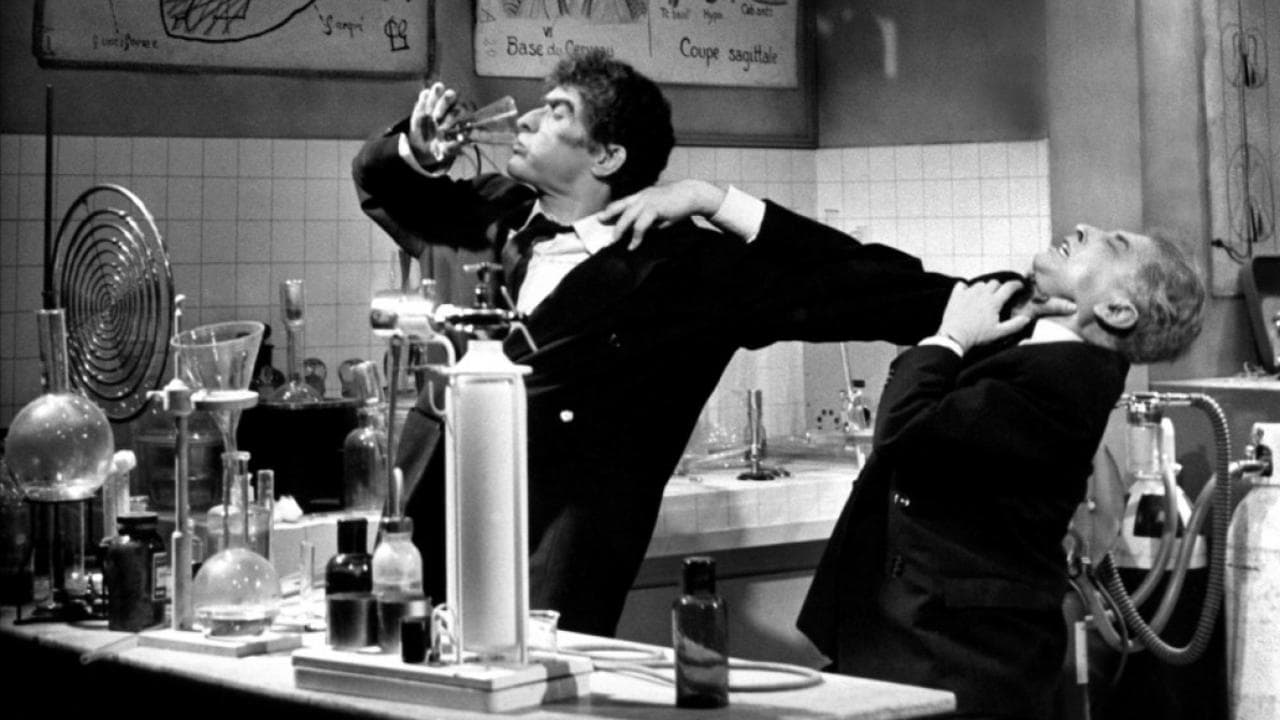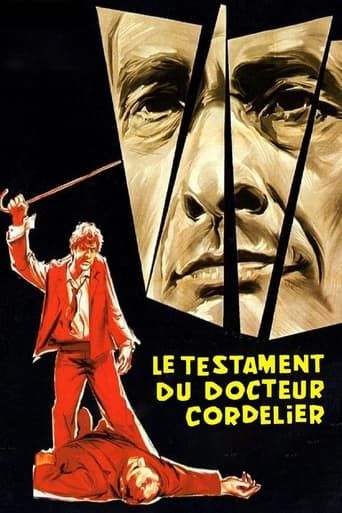

There is a quasi-prologue to introduce Cordelier, which goes a long way to connecting this TV-based production with other self-reflexive films Renoir made late in his career. Space is not explored or constructed in the same was as films like M. Lange or Regle while a lack of mobile framing maintains psychological identification with the characters. There is deep space, but not deep staging as the camera frames long corridors and archways but not groups of characters within the settings. There are situations where groups of townspeople move around together but it is a group held together tenuously and usually motivated by reactions to an event. The women in the building knew of Opale but found no reason to report his odd behavior underscoring that the milieu is very different from that of Lange, Illusion, Fonds or Regle. Some of the performances suffer from affectation which tends to diminish the impact of the Barrault roles. Dr. Cordelier has a moment while reading the newspaper where the audience is privy to an internal monologue - heightening the psychological dimensions of the narrative. There is some splattering of the famous Renoir stylistics when the doctor's party is thrown and later when the collective of workers attempt to stop Opale. Yet, soon after a flashback sequence puts things right back into the realm of the psychological (theatrical) as opposed to the social (realist). The themes of sexual perversion are somewhat muted (or perhaps they require a more 'European eye' to appreciate). The freedom that Cordelier experiences through subscribing to chaos has interesting political implications. In some manner, I feel that Cordelier is one of Renoir's more clearly political films. The narrative frame returns Renoir to the screen and the storyworld diegetic. The compulsion of the nature of humanity (quest of soul will be punished but will be freedom) echoes the true significance of a film like Regle - these films are connected philosophically, if not also thematically. Cordelier is well worth watching for the dynamic combination of Renoir and Barrault using the multiple camera shooting system. There is an even flow to the storytelling that renders the text engaging.
... View MoreI can see what everyone who enjoyed the movie sees in the film. There are quite a lot of good intentions in this one. Still the execution (I guess because it was made for TV) is not up to other Renoir movies. It also has dated quite badly. On the other hand, I watched the dubbed version, so I can only criticize the voices that were used, but I can also say that the body acting wasn't up to any good.It's a shame that this didn't work for me, as it did for some people here, because I love quite a few Renoir movies and I was looking forward to this one. Yes there is a twist to the story, but I actually don't think it is that big a deal. Just because other movies who have adapted this, haven't gone that route (if you wanna know what this is based on, read the other reviews, many do write about it, I don't want to spoil it, in case you wanna watch the movie).
... View MoreGPeoples-2 Made a comment about the lead actor's "rudimentary's make-up". The fact is Barrualt used no make-up, or camera tricks in his transformation. Barrualt was one of the most respected mime artists ever to live, displaying his talents in "Les Enfants du Paradise", and this brilliant film. His transformation is absolutely brilliant, and quite shocking to watch. Jean Renoir was one of the best directors who ever lived, and the fact that he made this brilliant made for TV film so late in his career, 1959, is a testament to his talents as a director and storyteller.If you can get a hold of this film I don't think you'll be disappointed.
... View MoreThis is a French TV film with the quality of a major cinema production. The opening is pretty unusual - director Jean Renoir plays himself as he arrives at the studio and then makes the concluding audio recordings as the narrator of his film.It's a fascinating variation of the Dr. Jekyll & Mr. Hyde theme, this time they are called Dr. Cordelier and Monsieur Opale. It's nearly unbelievable that both are played by one actor: Jean-Louis Barrault. How he uses his pantomimic and dancing abilities to portray Opale, the dark incarnation of Cordelier freed from all moral restraints, is phenomenal. His body movements and facial expressions are so weird ... and the walking-stick in his hand almost seems to lead an own life. What an outstanding performance!
... View More